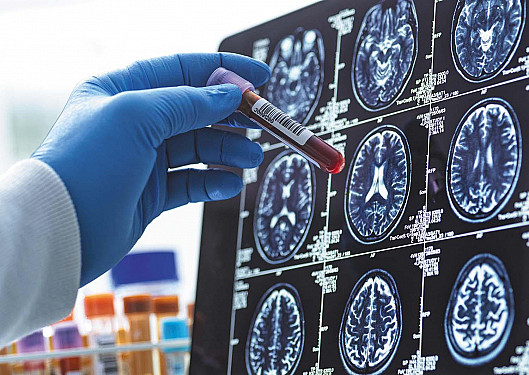Can A.I. help us find a dementia cure?
Ask the doctor

Q. Is it possible that artificial intelligence might help us prevent and cure dementia?
A. Even the people responsible for transformative new technologies can’t predict how they will be used: Steve Jobs marveled at the many ways the iPhone had changed the way we do things, ways he never imagined. I’m optimistic that artificial intelligence (A.I.) will lead to many biomedical discoveries, and here’s just one reason why.
Diseases are caused by the interaction of different molecules (typically proteins). The process is greatly affected by each molecule’s shape, similar to a lock and key: if the shape of one molecule fits into the other, it can activate a process that leads to disease. If scientists know the shapes of the molecules, they can create drugs to block keys from fitting in locks, and prevent or cure disease.
A century of research using traditional techniques had allowed scientists to determine the shapes of only about 30% of the roughly 20,000 human proteins. Then, in July 2021, two A.I. research groups announced that they had identified the shapes of nearly 100% of human proteins.
A.I. has since been used to determine the shapes of proteins known or suspected to be important in causing Alzheimer’s disease. For example, a study published online April 23, 2025, by the journal Cell used A.I. to help determine the shape of a molecule that is one possible cause of Alzheimer’s, and to create a drug based on the molecule’s shape that proved an effective treatment, at least in rodents.
It makes sense, then, that A.I. will play a role in curing and preventing Alzheimer’s in humans. That’s certainly what I’m hoping.
Image: © Teera Konakan /Getty Images
About the Author

Anthony L. Komaroff, MD, Editor in Chief, Harvard Health Letter; Editorial Advisory Board Member, Harvard Health Publishing
Disclaimer:
As a service to our readers, Harvard Health Publishing provides access to our library of archived content. Please note the date of last review or update on all articles.
No content on this site, regardless of date, should ever be used as a substitute for direct medical advice from your doctor or other qualified clinician.
















